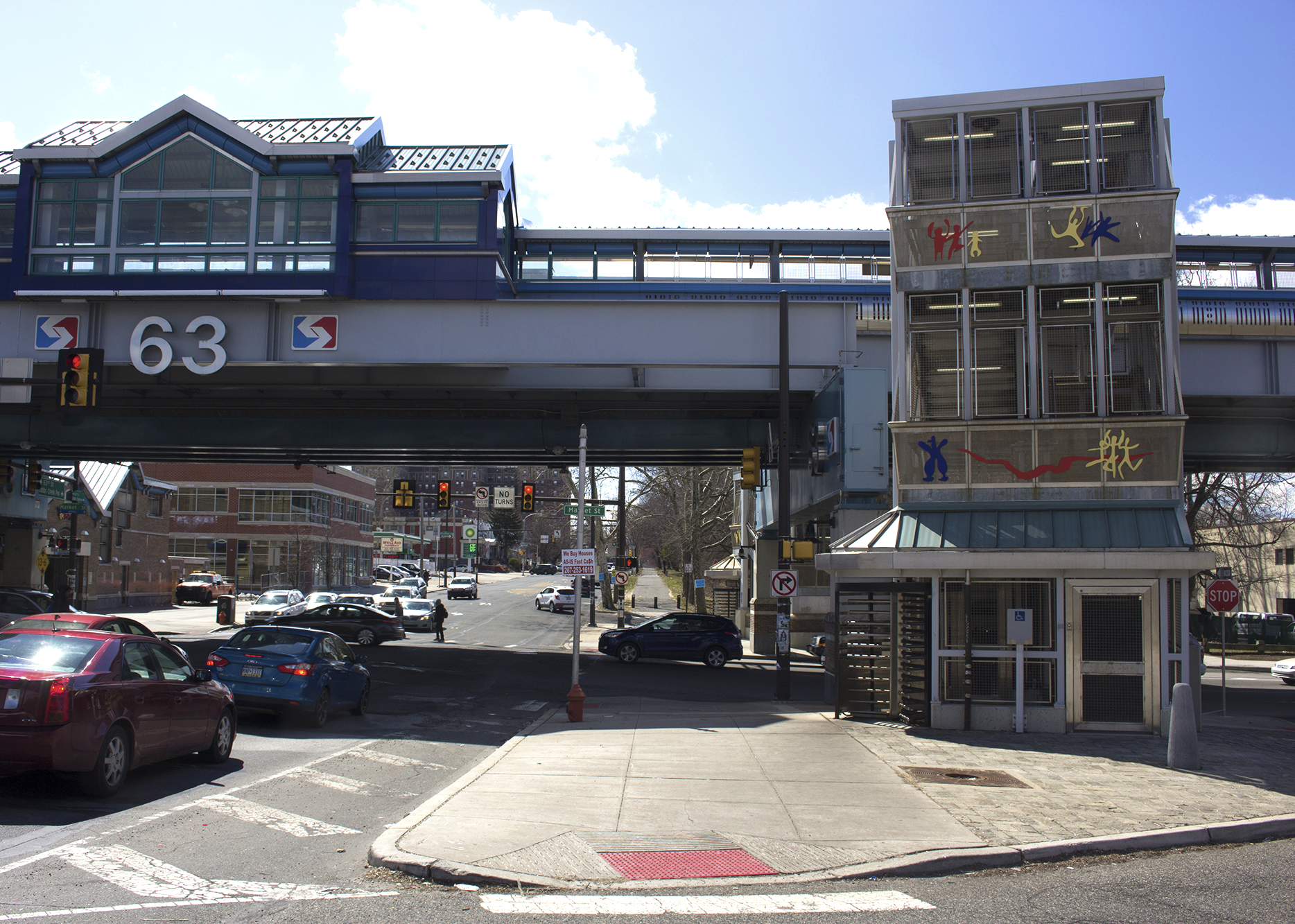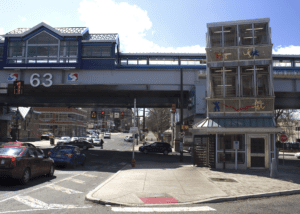
July, 5, 2021 – Communities identified by the Environmental Protection Agency (EPA) as Environmental Justice communities are more likely to experience issues that negatively impact pedestrian safety and result in higher rates of pedestrian fatalities from traffic crashes. According to PennDot, fatal or serious injuries from crashes are three times more likely to occur in low income communities and 30% more likely to occur in communities of color. These communities face real challenges to pedestrian safety including poor sidewalk conditions, lack of access to green space, and under funding for maintenance and safety enhancements.
Sidewalks are the foundation for walkability, and sidewalk condition is a major factor in deciding how people travel. Philadelphia has hundreds of miles of sidewalks in poor condition, with no concrete plan to fix them. The Council and its volunteer pedestrian advocacy group Feet First Philly work to improve the pedestrian environment in every neighborhood, protect the rights of pedestrians, and encourage walking as a mode of transportation, exercise, and recreation through public education, outreach, advocacy, and technical assistance to communities.
In 2020, Feet First Philly launched a sidewalk campaign to fund sidewalks like streets. Currently, homeowners are responsible for costly sidewalk repairs, which forms a barrier and liability for many residents who cannot afford to fix damaged sidewalks. Feet First Philly’s sidewalks campaign asks the city to set aside $500,000 to hire a full time sidewalks coordinator, conduct a sidewalk master plan, and create sidewalk repair funding strategy, as recommended by a 2018 Sidewalk Policy Transportation Community Development Initiative (TCDI) to the Office of Transportation & Infrastructure Systems.
Feet First Philly and the Council advocated for the sidewalk campaign through an op-ed in the Inquirer calling for the city to take action, by meeting with Councilmembers in preparation for budget season, and sending an action alert urging Mayor Kenney and City Council to fund sidewalks in the next budget. This spring, the Council and Feet First Philly joined 24 organizations advocating for Livable Communities budget requests, including dedicated funding for Vision Zero, transit, and sidewalks.
In addition to this budget campaign, the Feet First Philly Pedestrian Advocacy Guide connects people to city agencies and helps them navigate services to address safety concerns. Feet First Philly also developed two walk audit tools to engage residents, neighborhood leaders, students, and stakeholders to identify risks to pedestrians and connect residents to resources that can address these concerns.
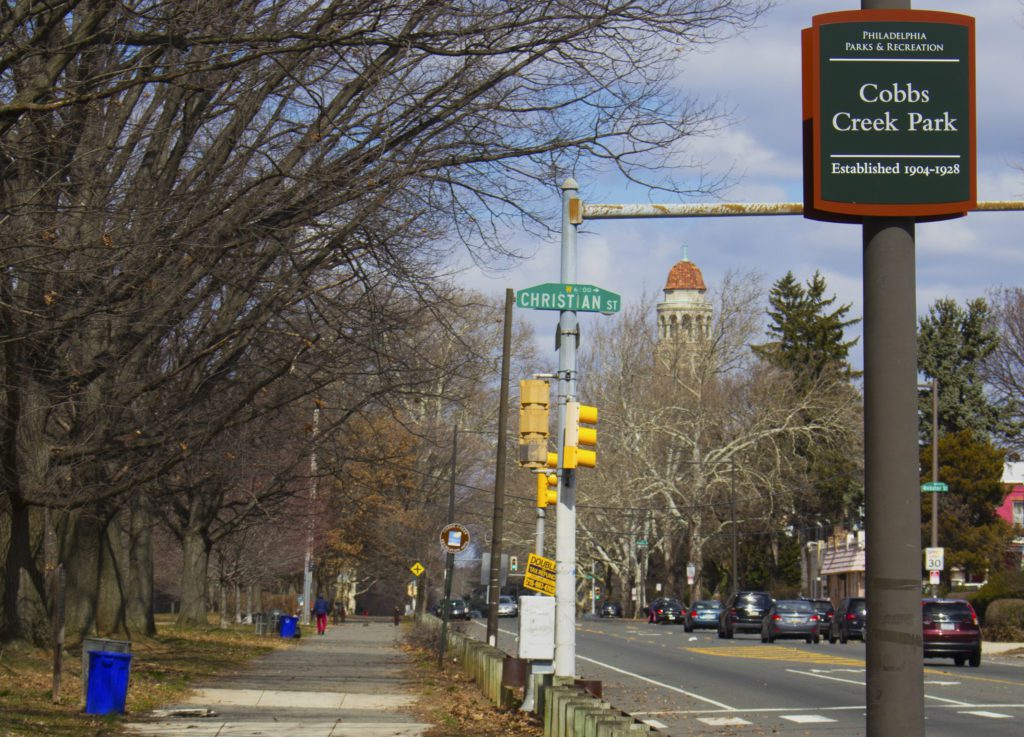
Highway design that prioritizes vehicle speed over pedestrian safety is a legacy issue that disproportionately affects communities of color in Philadelphia. Pedestrians accounted for just 7% of people involved in crashes from 2014 to 2018, but made up 40% of people killed in crashes during this period. Highly trafficked roads like Cobbs Creek Parkway make up the High Injury Network, the 12% of all Philadelphia roads that claim 50% of all traffic deaths and severe injuries.
For the past two years, the Council has connected residents, stakeholders, elected officials, and city agencies to work together to address the largest hurdle to accessing Cobbs Creek Park and Trail, which is the dangerous Cobbs Creek Parkway. The Parkway is a physical and mental hurdle for residents trying to access the park and connected trails and dangerous speeds, reckless driving, and lack of safe crossings are barriers that make the park and trail difficult and dangerous to visit. Tragically, the lives of three people were taken along the Parkway in the past year.
The Council partnered with Cobbs Creek residents to address their concerns and demand change. This resulted in the installation of speed hump and delineator posts. The Council continues to advocate for safety upgrades, and the City recently applied for funding to install new state of the art pedestrian crossings along Cobbs Creek Parkway. These would fill crossing gaps that stretch more than a mile and a half long and increase accessibility to this important trail and greenspace in one of the most dense areas of the city.
For more information contact Will Fraser, Transportation Project Manager, wfraser@cleanair.org
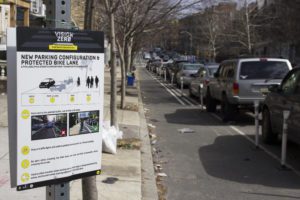
Clean Air Council joined the Bicycle Coalition and other Vision Zero Alliance advocates for a day of action on Tuesday, April 30th in Harrisburg. Advocates spoke to State Representatives and Senators about critical legislation needed to make streets safer for all road users.
If passed, this legislation would allow comprehensive integrated protected bike lane networks throughout Pennsylvania, create safe cycling and pedestrian spaces, and reduce dependence on automobiles. Protected bike lanes make bicycling safer, and are one of the best ways to protect pedestrians.
Pennsylvania State Senate Bill 565 (SB 565) and its companion House Bill 792 (HB 792) would allow pedestrian plazas and bike lanes on state roads to be separated and protected by parked cars. The bill was sponsored and introduced yesterday by 1st District State Senator Larry Farnese of Philadelphia.
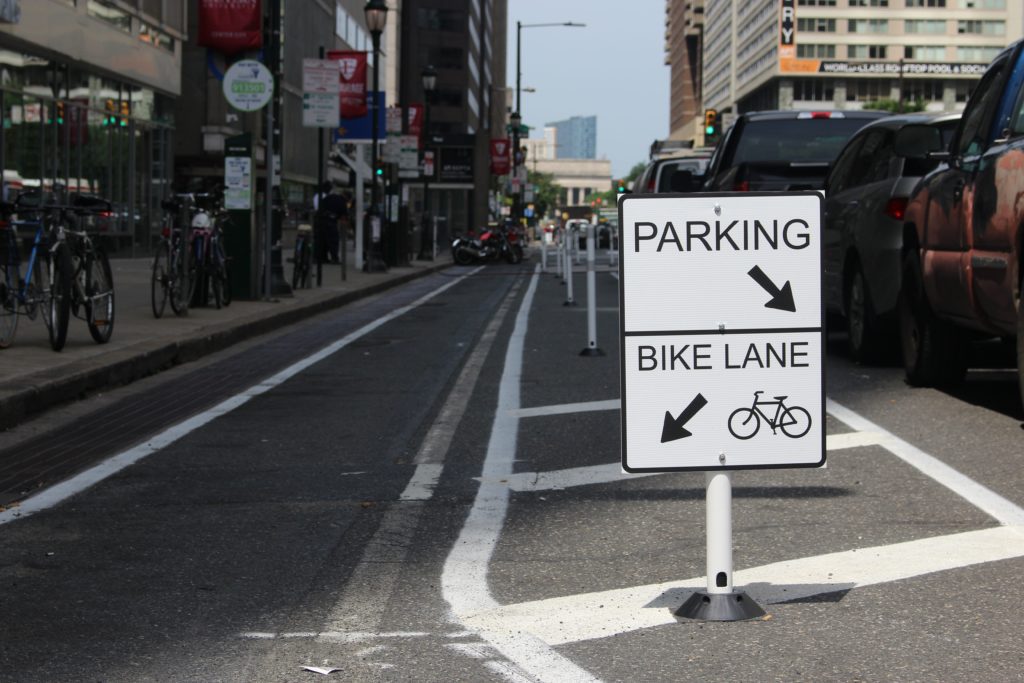
On state roads, pedestrians are 6.5 times more likely to die in crashes than non-pedestrians. While similar numbers of pedestrians involved crashes occur on local roads, 75% of pedestrian crashes that result in a fatal injury are on state roads. Protected bike lanes reduce traffic speeds by narrowing the road, calm intersections by reducing the turning radius, and create a shorter crossing distance for pedestrians.
House Bill 37, another important bill the Council advocates for, would ban hand-held cell phones while driving. The Fredricks family, whose daughter Emily was killed on her bicycle by a distracted driver while biking in the bike lane near 11th and Spruce Streets in Center City, spoke to legislators about their daughter and asked Senators and Representatives to pass legislation to prevent other families from experiencing similar tragedies. Distracted driving caused by cell phone use is a major cause of bicycling and pedestrian fatalities in Pennsylvania, and quadruples the risk of a crash. The Council asked legislators to join neighboring states New Jersey, Delaware, and Maryland in banning hand-held phones while driving.
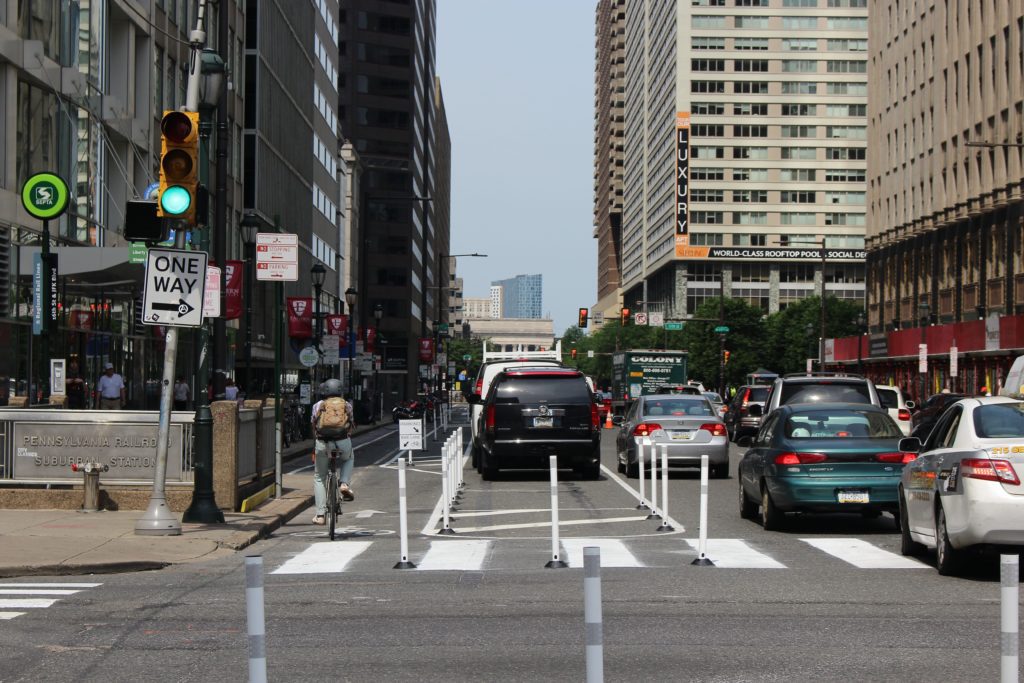
The Council also asked legislators to bring two bills to the floor that would have a major impact on road user safety. The first, a radar bill, (HB-1275) would allow municipal police to use radar technology. Pennsylvania is currently the only state in the country that does not allow municipal police from using radar to detect vehicle speeds. Speed is the largest predictor of how serious a crash can be. The difference of just 5 or 10 miles an hour can mean life or death.
Pennsylvania can more effectively slow drivers down by putting radar technology in hands of law enforcement across the Commonwealth. The second bill, yet to be introduced, would protect vulnerable road users including pedestrians, motorcyclists, horse and carriages, farm equipment, and others by requiring a minimum of four feet to pass. Many parts of the state do not have sidewalks, especially on the particularly dangerous state roads, and vulnerable road users must be afforded the protection of a minimum passing distance.
Creating safer roads for everyone is a common theme throughout all the bills presented to legislators on this day of action. Everyone has the right to travel safely, and a bipartisan focus on reducing traffic deaths, will create safer roadways for all users.
